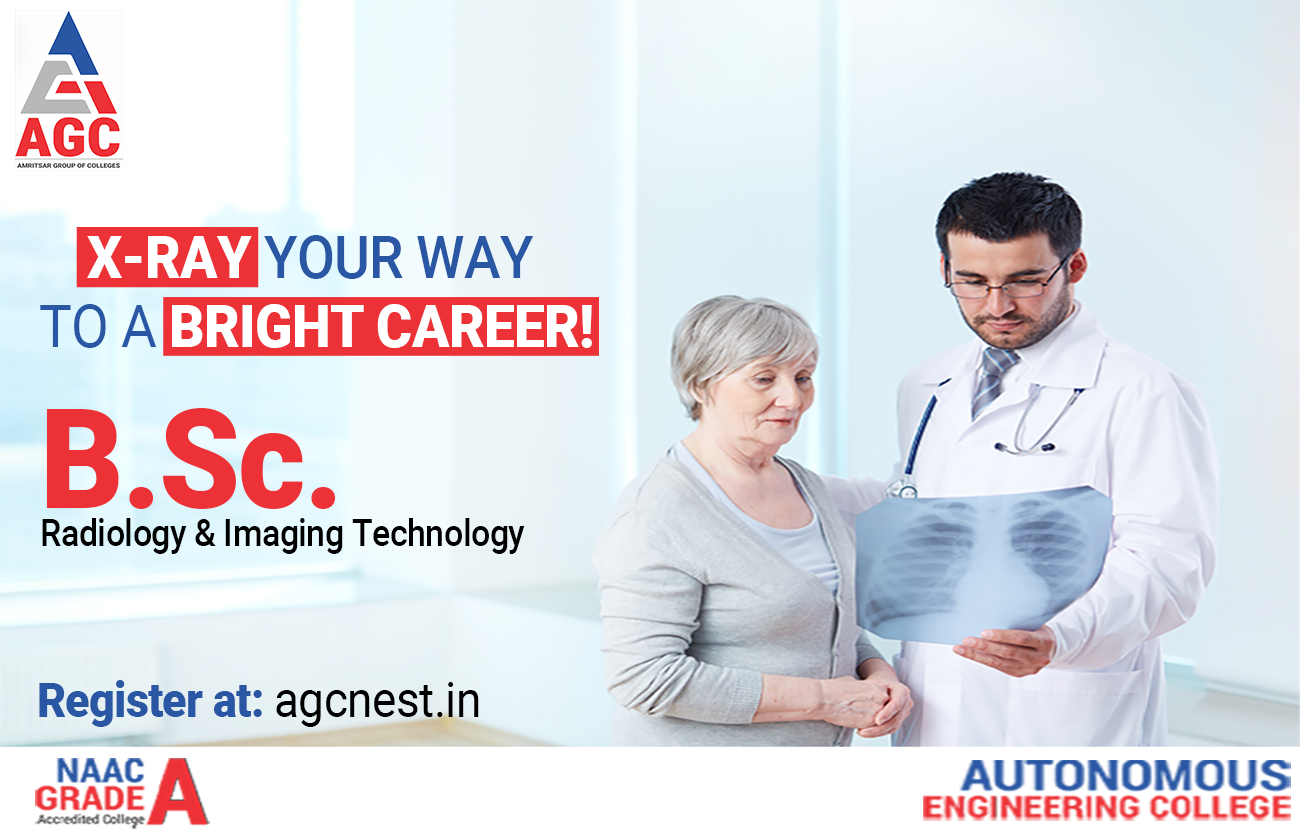
B.Sc. Radiology And Imaging Technology: A Gateway To Advanced Medical Imaging
In the rapidly evolving field of healthcare, medical imaging plays a crucial role in diagnosis, treatment planning, and monitoring. One of the prominent educational pathways into this specialized and impactful domain is a Bachelor of Science (B.Sc.) in Radiology and Imaging Technology. This blog delves into the details of this degree, shedding light on the curriculum, career prospects, and the significance of radiology in modern medicine.
About the course
A B.Sc. in Radiology and Imaging Technology is a comprehensive undergraduate program among the range of paramedical courses in Punjab designed to equip students with the knowledge and skills necessary to operate advanced imaging equipment and interpret the results. This degree blends theoretical knowledge with practical training, ensuring that graduates are well-prepared to meet the demands of the healthcare industry.
Curriculum Overview
The curriculum of a B.Sc. Radiology and Imaging Technology program typically spans three to four years and includes a mix of core subjects, elective courses, and hands-on training. Key areas of study often include:
-
1.Anatomy and Physiology:Understanding the human body’s structure and function is fundamental for accurate imaging.
2.Radiographic Techniques: Learning the principles and techniques of various imaging modalities, including X-ray, MRI, CT scans, and ultrasound.
3. Radiation Physics: Gaining knowledge about the physics of radiation and its safe application in medical imaging.
4. Pathology: Studying diseases and abnormalities that imaging can detect and help diagnose.
5. Patient Care: Focusing on patient safety, communication, and ethical considerations in radiology.
6. Imaging Informatics: Exploring the integration of information technology with imaging practices, including PACS (Picture Archiving and Communication Systems).
Practical Training and Internships
A significant component of the B.Sc. program from the best paramedical college in India involves practical training and internships in hospitals and diagnostic centers. This hands-on experience is crucial for students to gain proficiency in operating imaging equipment, understanding clinical workflows, and interacting with patients. Through internships, students also learn to work alongside radiologists and other healthcare professionals, preparing them for real-world scenarios.
Career Prospects and Opportunities
Graduates of B.Sc. Radiology and Imaging Technology have a wide array of career opportunities in the healthcare sector. Some of the prominent roles include:
-
1. Radiologic Technologist: Operating imaging equipment and performing diagnostic imaging procedures.
2. MRI Technologist: Specializing in magnetic resonance imaging to produce detailed images of organs and tissues.
3. CT Technologist: Conducting computed tomography scans to create cross-sectional images of the body.
4. Ultrasound Technologist: Using ultrasound equipment to capture images of internal organs, tissues, and blood flow.
5.Radiation Safety Officer: Ensuring compliance with radiation safety standards and protocols in healthcare facilities.
6. PACS Administrator: Managing imaging data storage and retrieval systems in medical institutions.
The Growing Importance of Radiology
Radiology and imaging technology are at the forefront of modern medicine. With the advent of advanced imaging techniques, early detection and accurate diagnosis of diseases have become more achievable. This has led to better patient outcomes and has significantly contributed to the advancement of personalized medicine.
Moreover, the integration of artificial intelligence and machine learning in imaging technology is revolutionizing the field. AI algorithms can assist in image analysis, improving diagnostic accuracy and efficiency. This technological advancement underscores the importance of staying updated with the latest trends and developments in radiology.
Conclusion
Pursuing a B.Sc. in Radiology and Imaging Technology course is a promising pathway for those interested in combining healthcare with cutting-edge technology. The program not only provides a solid foundation in medical imaging but also opens doors to diverse and rewarding career opportunities. As the demand for skilled imaging professionals continues to rise, graduates in this field are well-positioned to make significant contributions to healthcare and patient care.
Whether you are passionate about patient interaction, fascinated by medical technology, or eager to be at the heart of medical diagnostics, a career in radiology and imaging technology offers a fulfilling and impactful journey.


